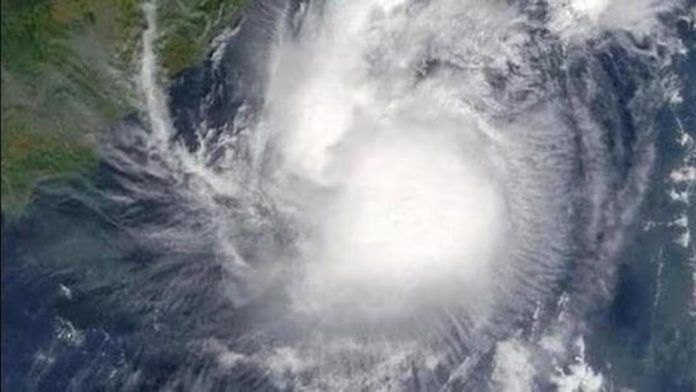NEW DELHI, May 24: A cyclone brewing in the Bay of Bengal will make landfall between Sagar Island in West Bengal and Bangladesh’s Khepupara on Sunday midnight, the India Meteorological Department (IMD) said on Friday.
This is the first cyclone in the Bay of Bengal this pre-monsoon season and will be named Remal, according to a system of naming cyclones in the Indian Ocean region.
The system will strengthen into a cyclonic storm by Saturday morning and further intensify into a severe cyclonic storm by Saturday night.
“It’s very likely to cross Bangladesh and adjoining West Bengal coasts between Sagar Island and Khepupara around Sunday midnight as a severe cyclonic storm,” the IMD said in an update.
The cyclone could reach a wind speed of 120 kilometres per hour on Sunday.
The Met office has warned of extremely heavy rainfall in the coastal districts of West Bengal and north Odisha on May 26-27. Extremely heavy precipitation may hit parts of northeast India on May 27-28.
Storm surge of up to 1.5 metre is expected to inundate low-lying areas of coastal West Bengal and Bangladesh at the time of landfall.
Fisherfolk out at sea have been advised to return to the coast and not venture into the Bay of Bengal until May 27.
The IMD warned of localised flooding and major damage to vulnerable structures, power and communication lines, kutcha roads, crops and orchards in South and North 24 Parganas districts of West Bengal.
People in the affected areas have been asked to remain indoors and vacate vulnerable structures.
Scientists say cyclonic storms are intensifying rapidly and retaining their potency for longer periods due to warmer sea surface temperatures, a result of oceans absorbing most of the excess heat from greenhouse gas emissions.
The past 30 years have witnessed the highest sea surface temperatures since records started being maintained in 1880.
According to senior IMD scientist D S Pai, warmer sea surface temperatures mean more moisture, which is favourable for the intensification of cyclones.
Madhavan Rajeevan, former secretary of the Union Ministry of Earth Sciences, said a sea surface temperature of 27 degrees Celsius and above is needed for a low-pressure system to intensify into a cyclone. The sea surface temperature in the Bay of Bengal is around 30 degrees Celsius at present.
“The Bay of Bengal and the Arabian Sea are very warm at present, so a tropical cyclone can easily form,” Rajeevan said.
But tropical cyclones are not only controlled by the ocean but also the atmosphere plays an important role, especially in terms of vertical wind shear — a change in wind speed and/or wind direction with altitude.
“A cyclone will not intensify if the vertical wind shear is very large. It will weaken,” Rajeevan said. (PTI)


